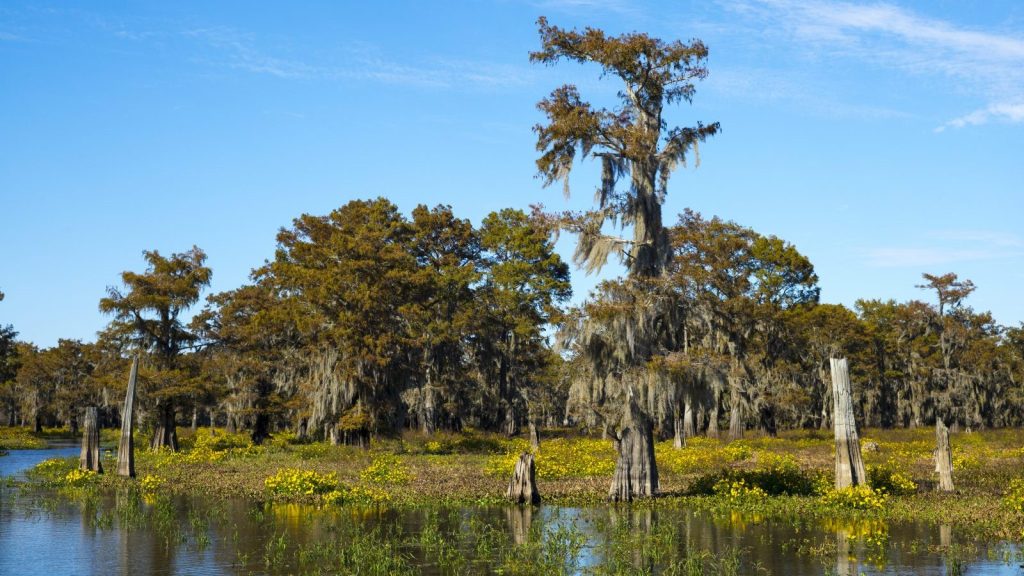Wetlands are a natural climate solution. Guess who’s turning them into big polluters?

Like all healthy wetlands, the Mississippi Delta was once a carbon sink, an ecosystem that sucks carbon dioxide out of the air and stores it in the ground. Now it’s unclear if it still is. As the delta rapidly sinks into the sea, it could release into the atmosphere thousands of years’ worth of stored-up carbon, effectively becoming a major polluter.
Where did all this carbon come from? Well, before the Mississippi River was constricted by dams, levees, and canals, it would flood regularly, carrying layers of sediment and plant matter into the surrounding land. As water soaked into the ground and the layers built up, becoming the delta, these wetlands sequestered more and more carbon deep in the soil. “We want to keep the soil in place, so all the carbon that has been sequestered into that soil stays there,” Melissa Baustian, a coastal ecologist at The Water Institute of the Gulf who focuses on the Mississippi Delta, told Grist.

